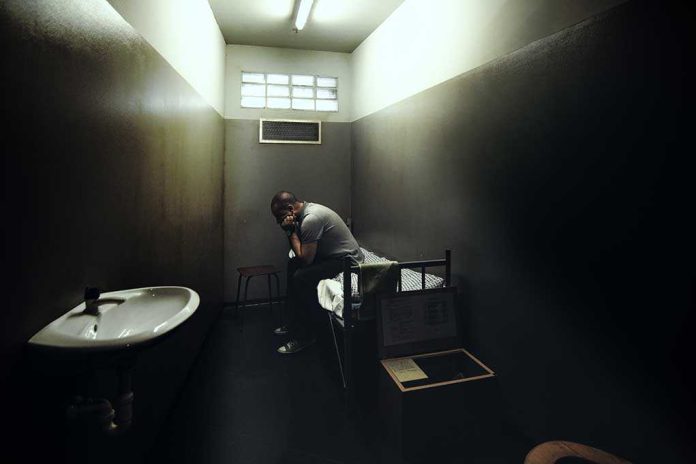
ICE detention centers have become breeding grounds for mental health crises, with solitary confinement placements for vulnerable detainees skyrocketing 41% under policies that prioritize punishment over proper psychiatric care.
Story Highlights
- Solitary confinement for mentally ill detainees increased 41% from December 2024 to August 2025
- Over 1,100 segregation placements occurred in ICE facilities during August 2025 alone
- Federal courts ordered reinstatement of legal services for mentally incompetent detainees
- Medical experts warn current practices violate international human rights standards
Crisis Reaches Breaking Point in Federal Facilities
Immigration detention centers operated by ICE have documented alarming increases in mental health emergencies throughout 2025. Between April and June alone, 131 people with serious medical or mental health conditions were placed in solitary confinement. This punitive approach contradicts established medical ethics that recognize isolation as harmful to vulnerable populations. The surge represents a systematic failure to provide constitutionally mandated healthcare to individuals in federal custody.
Solitary Confinement Used as Psychiatric Response
Medical professionals report ICE facilities routinely place detainees experiencing mental health crises into isolation rather than providing appropriate treatment. Dr. Altaf Saadi from Harvard Medical School documented how solitary confinement is used to manage psychiatric emergencies, effectively deterring other detainees from reporting symptoms. This practice violates basic medical principles and creates a chilling effect that prevents individuals from seeking necessary care when experiencing suicidal thoughts or severe depression.
Federal Courts Intervene Against Systemic Neglect
Legal challenges have forced federal intervention in several cases where ICE failed to provide adequate mental health services. Courts ordered the reinstatement of legal service programs specifically designed for mentally incompetent detainees, highlighting the agency’s failure to meet basic constitutional requirements. These judicial interventions represent acknowledgment that current practices fall below minimum standards for humane treatment. However, enforcement remains inconsistent across the sprawling network of detention facilities.
Long-Term Consequences Extend Beyond Detention
The mental health crisis in ICE facilities creates lasting damage that extends far beyond individual detainees. Dr. Lisa Fortuna from UC Riverside characterizes immigration enforcement as a public health emergency, noting trauma effects transmitted across generations within immigrant families. Healthcare systems face increased burdens from individuals released with untreated or worsened mental illness. These systemic failures undermine public safety and create costly long-term consequences for American communities dealing with the aftermath of federal neglect.
The documented increase in suicide attempts and deteriorating conditions reflects broader concerns about government overreach and the abandonment of basic humanitarian principles in federal operations. Conservative principles of limited government and individual dignity demand accountability for these failures in federal custody.
Sources:
The Marshall Project – ICE Detention Investigation
UC Riverside – Child Mental Health Crisis Tied to Immigration Enforcement
National Immigrant Justice Center – Mental Health in Detention
American Psychological Association – Mental Health and Immigration Enforcement



